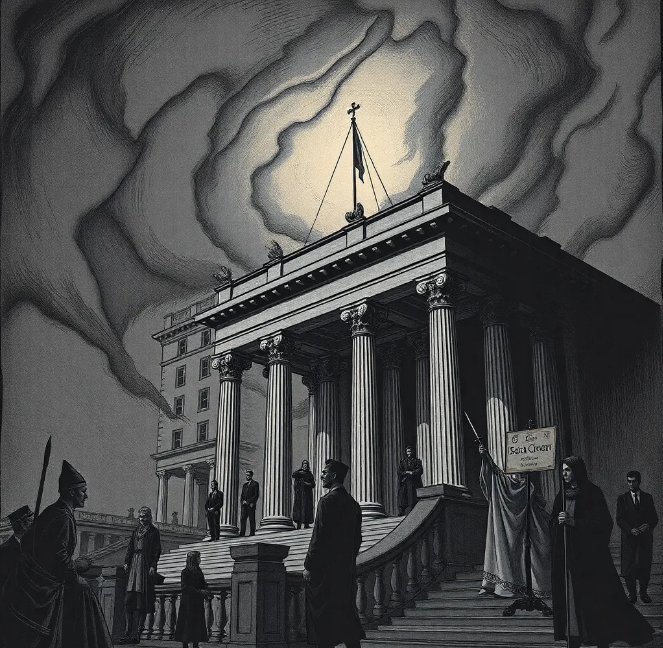Societal omertà refers to a widespread and deliberate silence that occurs within a community or society, where individuals choose not to speak up about injustices, suffering, or ethical breaches. Borrowing from the traditional mafia code of silence, "omertà" in this context isn’t enforced by fear but rather by apathy, detachment, or a desire to avoid conflict. In a world increasingly dominated by social media and constant noise, societal omertà reveals itself in the reluctance to address real issues or show genuine empathy, often replaced by a focus on superficial content and personal gain. This silence allows social problems to persist unchallenged and leads to a gradual erosion of empathy and justice. By choosing silence, individuals unintentionally permit harmful behaviors to flourish, deepening divisions and weakening the social fabric. Addressing this modern-day omertà requires not just personal responsibility but a collective commitment to confront issues openly and champion compassion and justice.
In the noise of the modern world, one might think that society is more connected than ever. Yet beneath the surface, a far more insidious problem grows—silence. This silence, or what we might call a societal omertà, is not born from fear of organized crime, but from a collective unwillingness to speak up for empathy, justice, and the truth. It is this silence that is pushing society further away from its moral compass, as pain festers unchecked, and the loudest voices become those seeking attention or profit at the cost of our shared humanity.
We live in a time where suffering is deafening, yet few are willing to truly listen. Our collective silence is not just ignorance; it is deliberate avoidance. The pressures to conform, to remain detached, or to simply not care have created an atmosphere where injustices grow, unchallenged. And while our screens are filled with endless streams of content, little is being said about what really matters.
The Empathy Crisis: Social Media's Noise vs. Silence
On platforms designed for connection, we see a paradox: a flood of content designed not to inform, not to empathize, but to draw attention and generate wealth. Viral videos of absurd stunts and horrendous behavior rack up millions of views, while the stories of real pain and injustice struggle to gain any traction.
Instead of offering empathy, many of us have become spectators in a digital colosseum. People seeking validation through likes and shares have commodified their very lives. But beyond the memes and the shock-value content, where are the discussions about real issues? Why has there been such a collective retreat from empathy and responsibility?
This is where the concept of a modern omertà comes into play. It's not that people are forbidden from speaking the truth or doing the right thing—they are simply choosing not to. In pursuit of attention or wealth, justice becomes secondary, and silence reigns supreme.
Justice in the Age of Silence
The consequences of this silence are catastrophic. The social fabric of communities is disintegrating as injustices go unaddressed. We are drifting toward a reality where empathy is sidelined, and the right thing to do is no longer obvious. Society becomes complicit in its own downfall.
The reluctance to speak out, to act with empathy, or to call for justice has created a void that destructive forces are only too happy to fill. When silence is seen as easier than taking a stand, we allow injustice to thrive. This silence, this refusal to acknowledge the moral decay around us, is how we drift toward a state of societal omertà.
The Cost of Silence: A Call to Action
The more we retreat into this silence, the more difficult it becomes to reverse course. Each day that we remain silent in the face of injustice, we deepen our complicity. Silence is not neutrality—it is permission for wrongs to continue. The call now is for reflection and action.
We must break this silence, shatter the societal omertà, and bring empathy back to the forefront of our actions. Speaking the truth, doing what is right, and standing for justice are not just personal responsibilities—they are collective imperatives. Our silence is costing us our humanity, and if we don't act soon, the damage may be irreversible.
